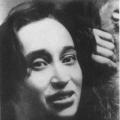Since our website www.site is dedicated not only to information security, which is in one way or another connected with intelligence and espionage, but also to intelligence itself. I would like to help the visitor understand the terminology associated with this topic. And so in this article I will try to answer the questions:
- What types of scouts are there?
- Who is a spy?
- Who is an intelligence agent?
- Who is an intelligence resident?
An intelligence officer or spy is usually called a person for whom intelligence is his main profession. An intelligence officer has a special intelligence education and is a full-time employee of one or more intelligence agencies.
 The famous Soviet intelligence officer Richard Sorge (Ramsay)
The famous Soviet intelligence officer Richard Sorge (Ramsay) While carrying out his assignments, a professional intelligence officer may be in a foreign country under the guise of a journalist, diplomat, entrepreneur, etc.
What types of scouts are there?
Scouts are:
- Legal
- Illegal
"Legal" intelligence officer acts in other countries as a citizen of his country, working in one of its representative offices (for example, an embassy).
"Illegal" intelligence officer works under the guise of a citizen of the country in which he is located, or a foreigner from another, third country.
Who is an intelligence agent?
An intelligence agent is an intelligence assistant who is not a professional intelligence officer, but who carries out assignments for intelligence agencies.
In some cases, the importance of an agent in obtaining the necessary information is even higher than the role of a professional intelligence officer, since such people may have access to secret data that is not available to the intelligence officer.
Who is a spy?
Now let's figure out who a spy is? and who do we call spies?
One of the first books on intelligence gives the following formulation: “All our employees are intelligence officers, and all enemy employees are spies.”
The word “Spy” has always been considered a despicable word all over the world. It is believed that these are people who sold the interests and secrets of their country for money.
 Red Chapel
Red Chapel
But there is a deep difference between hero scouts and corrupt spies, although both seem to pursue a common goal: to learn the secrets of the enemy. But we can hardly call the members of the Red Chapel who helped intelligence spies who were caught and executed during World War II in Germany. They were brave and fierce anti-fascists, ready to give their lives just like those soldiers who fought the enemy at the front.
These people did not receive any monetary rewards for their work; their goal was one - to protect the people of Germany from fascism. There have been many similar cases in the history of intelligence.
Who is a resident?
Another term you may come across in the intelligence world: resident. This is an intelligence department employee in charge of a station, that is, a group of agents and intelligence officers subordinate to him.
And of course, you need to know who the counterintelligence officers are. There is counterintelligence in every country. This is an organization designed to fight and protect from enemy intelligence, to prevent it from collecting classified data. Counterintelligence officers carry out difficult operations to expose and apprehend enemy spies.
Intelligence and espionage Igor Anatolyevich Damaskin
Who's who in intelligence?
Who's who in intelligence?
An intelligence officer is usually called a person for whom intelligence is his main profession. He has a special intelligence education and is a full-time employee of one of the intelligence agencies. While carrying out his tasks, a professional intelligence officer can also be “under the roof,” that is, as a diplomat, journalist, businessman, etc.
There are “legal” and “illegal” scouts. A “legal” intelligence officer acts abroad as a citizen of his country, working in one of its representative offices (for example, an embassy). An “illegal” intelligence officer acts under the guise of a citizen of the state where he is located, or a foreigner from a third country.
Intelligence assistants are agents who are not professional intelligence officers, but carry out intelligence orders. Sometimes their role in obtaining important information is even higher than the role of a scout, since they have access to secrets that are inaccessible to a scout.
Now a very important question: who do we call spies?
One of the American books says: “All our agents are intelligence officers, and all enemy agents are spies.” For the sake of simplicity, we can agree with this: everyone who works against our country is spies, and everyone who works against our country is intelligence officers.
Spy is a despised word all over the world. Usually these are people who sell the interests and secrets of their homeland for money. They bear the heaviest punishment.
But there is a deep difference between hero-scouts and corrupt spies, although both seem to pursue the same goal: to find out the secrets of the enemy. However, it is hardly possible to call the Red Chapel members who helped our intelligence service executed during World War II in Germany as spies (you will read more about this). They were fearless anti-fascists, ready to die just like those soldiers who fought at the front. They did not receive any money for their work, their goal was one - to save the people of Germany from fascism. There have been many similar cases in history.
Another concept that you will come across in the book: resident. This is an intelligence officer in charge of a residency, that is, a group of intelligence officers and agents subordinate to him.
Finally, you need to know who the counterintelligence officers are. Counterintelligence exists in every state; it is a service designed to fight enemy intelligence and prevent it from collecting secret information.
Counterintelligence officers carry out complex operations to expose and capture enemy intelligence officers and spies.
It should be noted that captured spies and illegal intelligence officers will face the most severe punishment, including the death penalty.
However, in peacetime, it is sometimes possible to save lives and restore freedom to intelligence officers and illegal agents by exchanging them for a captured enemy agent. This exchange is shown in the film "Off Season".
And in real life This is how the Soviet intelligence officer Rudolf Abel was exchanged for the American pilot Francis Harry Powers, who was making a reconnaissance flight over the territory of the USSR and was shot down on May 1, 1960 in the Sverdlovsk region.
Francis Harry Powers
Legal intelligence officers with diplomatic status, if they fail, are declared “persona non grata” (that is, “undesirable persons”) and expelled from the country within 24 hours.
Intelligence and counterintelligence are called "secret" or "special services", or "special services" for short.
From the book School of Survival in Natural Conditions author Ilyin AndreyCHAPTER SIX What to eat when there is nothing to eat, or How to provide food in an emergency situation Already in the first hours of the accident, it is necessary to collect all the products, including those accidentally “lying around” in your pockets, in one place and carefully sort them. In this case it is necessary
From book Incredible adventures Russians, or Asian attraction author Novikova OlesyaCHAPTER 15. Travel to eat or eat to travel? Four months on the road. Thailand, Phuket Island, in the company of Russian guides, we have dinner at a local cafe. - What kind of dish did you order? - It’s Pad Thai Kung - fried noodles with shrimp! One of the most popular
From the book Save the Cat! And other secrets of screenwriting by Snyder Blake“What is, is” Well, there are only a few final words left to say on the topic. Frankly, I'm a little sad to finish the book. I enjoyed working on it and I hope it was helpful to you in some way. I was honored to be part of
author From the book Your Own Counterintelligence [Practical Guide] author Zemlyanov Valery Mikhailovich From the book 1001 questions expectant mother. Big book of answers to all questions author Sosoreva Elena PetrovnaEating right: what to eat, when to eat, how to eat. Ten basic principles of nutrition. How to count calories. Food pyramid. Vitamins and microelements. Which drinks to drink and which ones not to drink. All diets are postponed. Correct mode nutrition. Ten principles
author Damaskin Igor AnatolievichWhat you need to know about intelligence What does intelligence do? In order to find out when and with what forces the enemy is going to attack, you need to know his plans. And military plans correspond to political ones, which are developed and adopted by state leaders with the help of their
From the book Intelligence and Espionage author Damaskin Igor AnatolievichAnd great scientists helped intelligence. Years and decades passed. Objects for industrial espionage kept increasing. Gradually he became “legalized”. Thus, the decree of the French government in 1791, which recognized “anyone who brings to France any
From the book I Explore the World. Forensics author Malashkina M. M.Forensics in intelligence In this chapter you will learn in detail about the work of intelligence officers, who are called “reverse criminologists.” Is intelligence a profession? What subjects are studied at the “school for intelligence officers”? And are there final exams? What do the words "settings" mean?
author Serov Vadim VasilievichThere is a person - there is a problem, there is no person - there is no problem. Erroneously attributed to J.V. Stalin: there is no evidence that he ever said or wrote anything similar. This phrase is from the novel “Children of the Arbat” (1987) by Anatoly Naumovich Rybakov (1911 - 1998). This is how J.V. Stalin talks about
From the book Encyclopedic Dictionary of Catchwords and Expressions author Serov Vadim VasilievichWest is West, East is East, and together they will never come together From “The Ballad of East and West” by the English writer Joseph Rudyard Kipling (1865-1936), who, contrary to popular belief, says in it that, despite the differences between these civilizations,
From the book Encyclopedic Dictionary of Catchwords and Expressions author Serov Vadim VasilievichOne must eat in order to live, and not live in order to eat. From Latin: Non ut edam vivo, sed ut vivam edo [non ut edam vivo, sed ut vivam edo]. Translation: I eat to live. And some live to eat. Words ancient Greek philosopher Socrates (c. 470-399 BC), given by ancient Greek
From the book "Spy Things" and devices for protecting objects and information author Andrianov Vladimir Ilyich5. COUNTERING COMMERCIAL INTELLIGENCE WITH THE HELP OF TECHNICAL MEANS The reader who has read the contents of the previous chapters of this book does not need to prove how much attention should be paid to protection against unauthorized receipt of information from
author Ardashev Alexey Nikolaevich From the book Survival Manual for Military Scouts [Combat Experience] author Ardashev Alexey Nikolaevich From the book Basic Special Forces Training [Extreme Survival] author Ardashev Alexey NikolaevichIn fact, they have different legal status.
International humanitarian law is a set of international legal norms and principles governing the protection of victims of war, as well as limiting the methods and means of warfare. It is also called the law of war or the law of armed conflict. It is codified in the Hague Conventions, Geneva Conventions for the Protection of War Victims of 1949 and Additional Protocols to them 1977, resolutions of the UN General Assembly and other documents.
The difference between a spy and an intelligence officer for lawyers is not only in shades of meaning. The main thing is to treat them as participants in a military conflict.
Unlike a spy, an intelligence officer, that is, a person from the armed forces of a party to the conflict who, on behalf of that party, collects or attempts to collect information in territory controlled by the opposing party, is not considered to be engaged in espionage if, in so doing, , it wears the uniform of its armed forces. Thus, in the event of capture, an intelligence officer has the right to prisoner of war status, but a spy does not. The spy may be subject to criminal prosecution.
In this sense, the Soviet illegal intelligence officer, Standartenführer SS Max Otto von Stirlitz was a spy. Because from the point of view international law Only front-line intelligence officers wearing the uniform of their armed forces can be considered intelligence officers. All intelligence agents are, by definition, spies.
IN manual on international humanitarian law for the Armed Forces Russian Federation spies and intelligence officers are also divided.
In comments and in conversations, this comparison is often used as an argument. Linguistically, it, of course, has a right to exist - we all understand that we are talking about one and the same thing. But legally, the difference between a spy and an intelligence officer is very significant.
Answer from °*”*° Veda °*”*° [guru]
A spy is a person who secretly collects information about one of the conflicting parties for the benefit of the other party. Close in meaning to the word “scout”, but differs from it in some features of use and a general negative connotation. In international law, the status of a spy and an intelligence officer differs significantly.
In accordance with international humanitarian law, any person from the armed forces party to the conflict who falls into the power of the opposing party while engaged in espionage is not entitled to prisoner of war status and may be treated as a spy, that is, he may be subject to criminal prosecution.
Unlike a spy, an intelligence officer, that is, a member of the armed forces of a party to the conflict who, on behalf of that party, collects or attempts to collect information in territory controlled by the opposing party, is not considered to be an espionage unless, in so doing, it wears the uniform of its armed forces. Thus, in the event of capture, the intelligence officer has the right to prisoner of war status.
Accordingly, from the point of view of international law, only front-line intelligence officers wearing the uniform of their armed forces can be considered intelligence officers. All intelligence agents are, by definition, spies
Answer from Victor Kornev[guru]
Both words mean the same thing, but a scout is a hero, which means OUR, and a spy is an enemy (THIS) ---)))
Answer from Igornik[guru]
You answered it yourself! Foreigners are nasty, bastards are spies, and ours are heroic intelligence officers!
Answer from Mainka[active]
We call our fellow a scout who scouts something about others (strangers)... and a spy is the opposite: a stranger and learns something “about us.” That’s why the perception of these words is opposite!
Answer from UNKNOWN[guru]
The spy wants to steal information from you, but the intelligence officer
For you. According to the principle of “friend or foe”. Children's explanation.))) As for American understanding, translation is a delicate thing. Many of our words, terms and concepts do not coincide.
Answer from Alekx KU[guru]
spying on us we are reconnaissance
there is nothing complicated.
Answer from Lusa diatchenko[guru]
for their own -
scout
for the enemy -
spy
today
drives -
the one who came out
Answer from Aahzam Imamullah[newbie]
I became interested in the reasoning of “VIRGIN” - “... only front-line intelligence officers who wear the uniform of their armed forces can be considered intelligence officers.”
I would like to ask you a question as a veteran of the Armed Forces who served in a special forces group of the Northern Fleet. Let's say I ended up on the beach of a potential enemy for the purpose of...well, it doesn't matter. In only shorts, oh, that is, in swimming trunks! I'm finding out. And then - bam, I was captured by enemy counterintelligence, you bastards. Well, it’s clear with that hare, who, if identified by his ears, then he is 300 years old. But what about me - will they identify me by my uniform - that is, by my underpants, oh, again, by my SUITS or by my DICK now?




